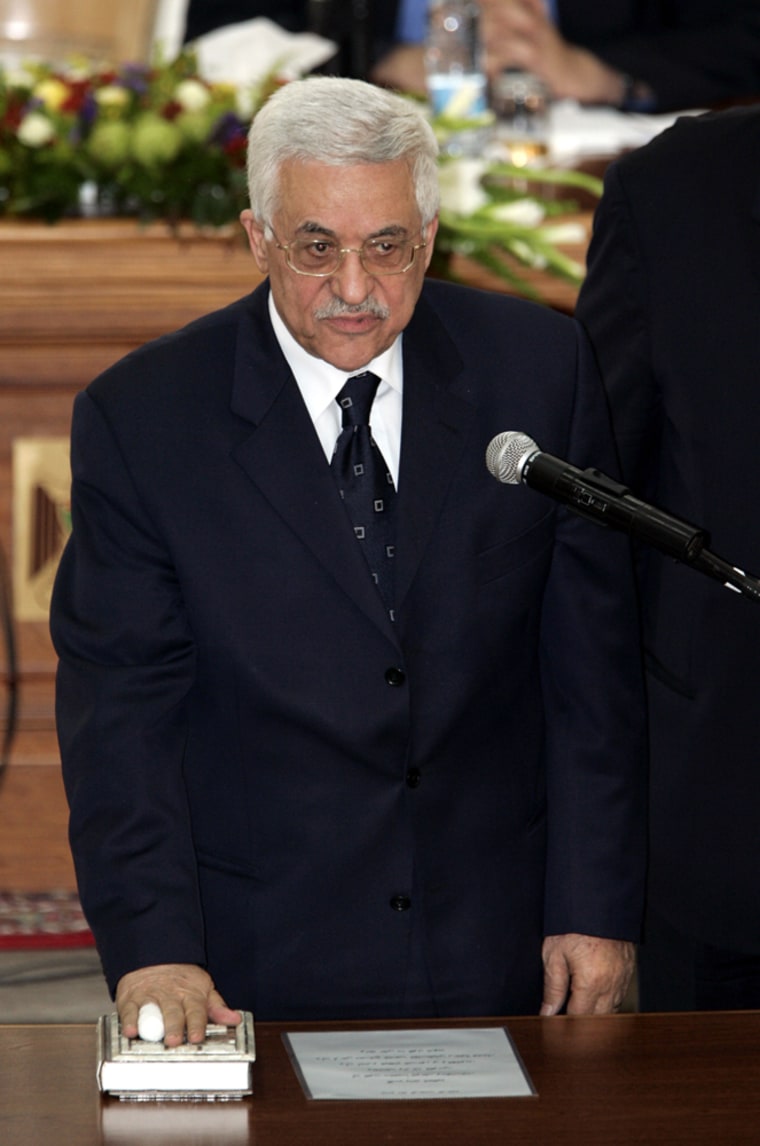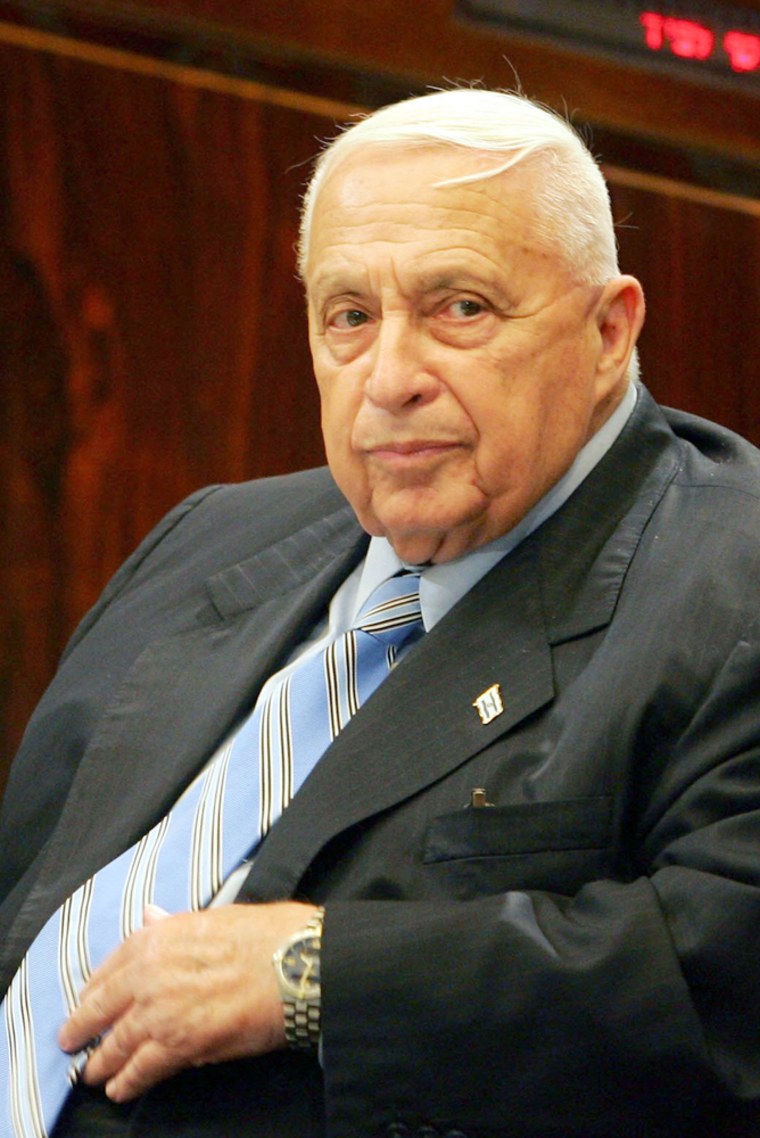TEL AVIV, Israel — At the moment, the future of the Israeli-Palestinian conflict is all about two leaders — one dangerously overweight and one dangerously lightweight.
Israel's Ariel Sharon, facing elections in March, faces more questions about his weight and health than he does about his political agenda.
And Palestinian leader Mahmoud Abbas, facing elections in January, is losing all pretense of being in control of his people.
How these two leaders grapple with their different “weight” issues over the next year may help determine the success or failure of the roadmap for peace in the Middle East.
Palestinian elections
Israeli, and some American officials, dismiss Abbas as a political lightweight who is unable, or unwilling, to stop his own militiamen from attacking election offices throughout Gaza and the West Bank. Gunbattles, threats and intimidation against election officials are a daily reality.
In Jenin, one Al Aqsa Martyrs’ Brigade commander, Zakariah Zubeideh, warned he would stop the parliamentary elections scheduled for Jan. 25 from happening in his town because he disagrees with the candidates put forward by Abbas to represent the Fatah movement. Meanwhile, Palestinian analysts predict the swirling violence could cause the elections to be postponed.
That would play right into the hands of Abbas because all polls presently show the Islamic Hamas gaining around 40 percent of the seats.
Many of the older Fatah leaders are scared they'll lose power to Hamas, or to the younger Fatah representatives supported by the Al-Aqsa Martyrs’ Brigade.

So according to Israeli and Palestinian analysts, the violence may point to the Fatah dirty tricks department provoking disruptions in order to stop the elections from transferring power to Hamas.
But Abbas would need more than this to convincingly delay elections, like a confrontation with Israel over the voting rights of East Jerusalem Arabs, or a violent Israeli response to Palestinian rocket attacks from Gaza.
Speculation falls into the category of — democracy is a fine thing as long as the right guys win. And Hamas, blacklisted by America as a terrorist organization, and forbidden by the United Nations and the European Union even to take part in the elections, definitely falls into the category of the wrong guy.
Unfortunately for the powers-that-be though, Hamas, in contradiction to Fatah, which is widely seen as corrupt, inefficient and weak, is increasingly the choice of many Palestinians.
Not necessarily because they want an Islamic state, but because they are fed up with the Fatah corruption and inefficiency that has seen around $7 billion in foreign aid to the Palestinian people in the last decade disappear with no noticeable improvement in the lives of the people.
Message to Sharon: No more doughnuts!
As for the Israeli elections, the most important slogan to emerge so far from the earthquake surrounding the new political life of Ariel Sharon seems to be — no more doughnuts!
After a 24-hour scare from a mild stroke just before Christmas, his daughter-in-law has taken control of his legendary eating habits and is advising him on his diet.
The Knesset physical fitness instructor, a 29-year-old ironically also named Ariel Sharon, has advice for the prime minister's exercise regimen, which so far has been non-existent, and the entire Jewish nation seems to have advice for his continuing health.
Sharon, at 5 feet 6 inches tall, weighs in at 253 pounds. He has a body mass index that has been described as “gargantuan” by the Jerusalem Post — 49, compared to a normal 20 to 25. Suddenly everyone's an expert here (including this writer) — body mass is calculated by dividing weight by the square of one's height.
Former New York Mayor Ed Koch was quoted as telling Sharon "You're fat and you eat too much," and he continued, "I was a fat little boy, but I was never as fat as Sharon."
But the jocularity surrounding 77-year-old Sharon's gluttony is accompanied by dire speculation about who would succeed him if he died, and that's no laughing matter.
The party Sharon formed, Kadima, a breakaway from the ruling Likud, is certain to win big in the elections, but its weakness is that it’s a one-man party.
Important leaders have followed Sharon into this new political adventure like Deputy Prime Minister Ehud Olmert and Defense Minister Shaul Mofaz, but there's nobody who could unify and lead the new grouping like Sharon.
Vulnerable leaders
Sharon and Abbas are two men committed to the roadmap to peace and ready to set new guidelines for the Israeli-Palestinian conflict in the New Year, but both highly vulnerable.
Because of his health scare, pundits believe Sharon will be in even more of a hurry than usual to take whatever measures he is planning to define Israel's final borders — with or without the cooperation of Abbas — assuming the latter is still the Palestinian leader.
